
Date: 2026-01-18 Page is: DBtxt003.php txt00021843
RUSSIAN INVASION OF UKRAINE
SANCTIONS
Global Banks Poised for Turmoil as West Hits Russia With Sanctions
SANCTIONS
Global Banks Poised for Turmoil as West Hits Russia With Sanctions
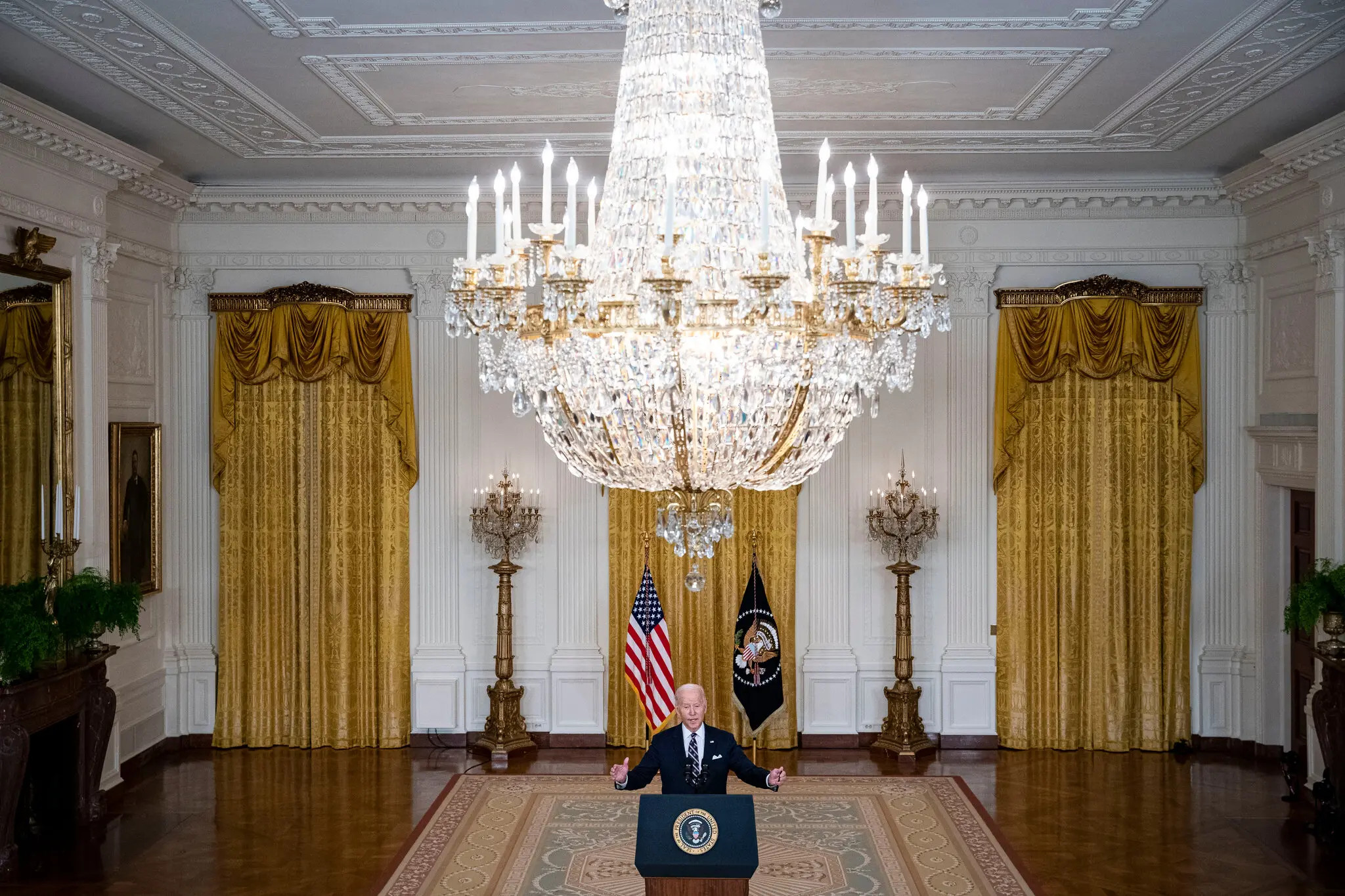
President Biden announced the first round of sanctions on Russia on Tuesday at the White House.Credit...Al Drago for The New York Times
Original article: https://www.nytimes.com/2022/02/22/business/banks-russia-sanctions.html
Burgess COMMENTARY
Peter Burgess
The U.S. and Britain are aiming to throttle Russia’s access to foreign capital. But things could get complicated for the entire global financial system.
Written by Lananh Nguyen and Alan Rappeport
Feb. 22, 2022
Global banks are bracing for the ripple effects of harsh new financial and economic sanctions against Russia intended to hobble its economy and restrict its access to foreign capital.
On Tuesday, President Biden announced that the United States would impose sanctions on Russia’s main development bank, VEB, and its military bank, Promsvyazbank, and enact comprehensive curbs on Russia’s sovereign debt, effectively cutting the country off from Western financing. He said the United States was also preparing to impose sanctions on Russian elites and their family members.
The sanctions will sever the state-backed banks from the United States financial system and make it tougher for Russia to raise money in foreign markets for large domestic infrastructure projects, most likely hampering growth. The actions were a taste of what is in store for Russia’s economy.
“We will continue to escalate sanctions if Russia escalates,” Mr. Biden said.
Prime Minister Boris Johnson of Britain on Tuesday also imposed sanctions on several Russian banks and three Russian billionaires. And Chancellor Olaf Scholz of Germany said he would halt certification of the Nord Stream 2 natural gas pipeline that would expand energy imports from Russia.
The collective Western response is aimed at punishing Russia for escalating its aggressions toward Ukraine. On Monday, Russia issued a decree sending troops to two regions of Ukraine, a move widely construed in the West as a first step toward a full invasion.
Over the past decade, the United States has increasingly used sanctions to address diplomatic tussles, including in North Korea and Iran. It has been able to do so because the dollar is the world’s reserve currency and is the most widely used for payments. However, the repercussions of sanctions are far from clear-cut or precise. In the case of Russia, it’s likely that much of the global financial system could also take a hit because of the intertwined nature of global trade — even if the impact is small.
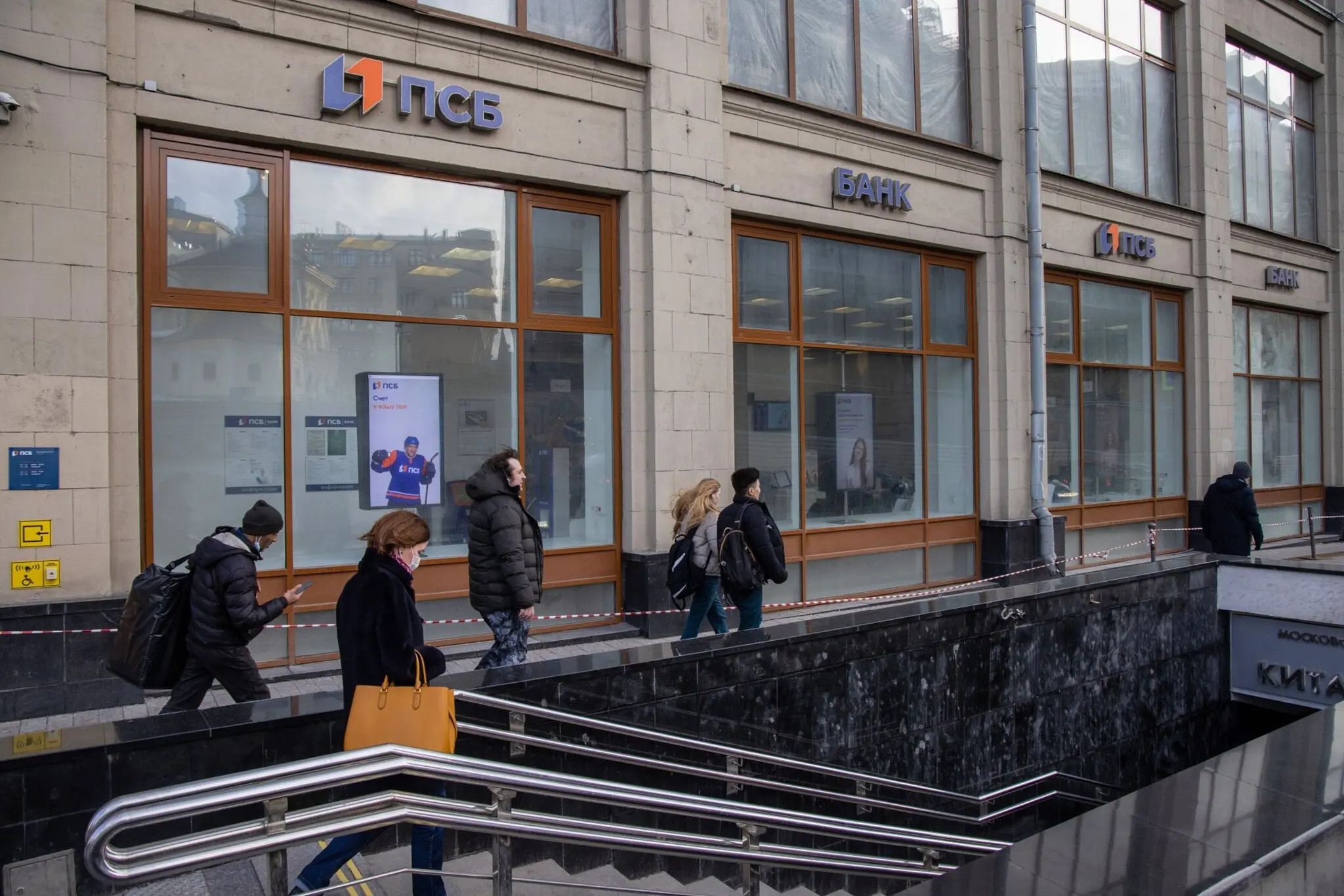
A Promsvyazbank branch in Moscow on Tuesday ... Credit...Andrey Rudakov/Bloomberg
Since 2014, when the United States imposed penalties on Russia, after President Vladimir V. Putin’s annexation of Crimea, American and Western banks have pulled back from direct dealings in the country. Still, the Biden administration’s sanctions could have far-reaching and indirect consequences because Russia is a major exporter of staples like natural gas and wheat, and it conducts business with companies and countries around the world. As middlemen, banks typically handle those transactions.
Severe economic penalties could disrupt global trade flows if banks are forced to stop processing payments for goods and services going in and out of Russia, according to the Institute of International Finance, a trade association that represents global banks.
“The issue here is not just the immediate impact on the financial markets, but the fact that it’s almost impossible in the near term to disentangle” Russia from global trade, Elina Ribakova, the institute’s deputy chief economist, said in an interview. “There is room for contagion.”
For instance, if an American company wants to pay for Russian fertilizer using money from its U.S. bank account, and the seller has an account with a Russian bank that is under sanctions, the U.S. bank would not be able to process that payment, according to a banking expert on sanctions who spoke on the condition of anonymity.
Sanctions could also spread economic instability worldwide by raising prices for key commodities that Russia produces — including oil, gas, fertilizer and palladium — and spur inflation in countries that import those products, landing a fresh blow just as the world emerges from the pandemic.
Russia’s own economy could be relatively protected from the full impact of sanctions. Its external debt and ties to other advanced economies have waned since the 2014 Crimea crisis, insulating its economy from efforts to cut it off from the global financial system, economists at Capital Economics noted. They predicted that the most likely sanctions measures could shave around 1 percent from Russia’s gross domestic product.
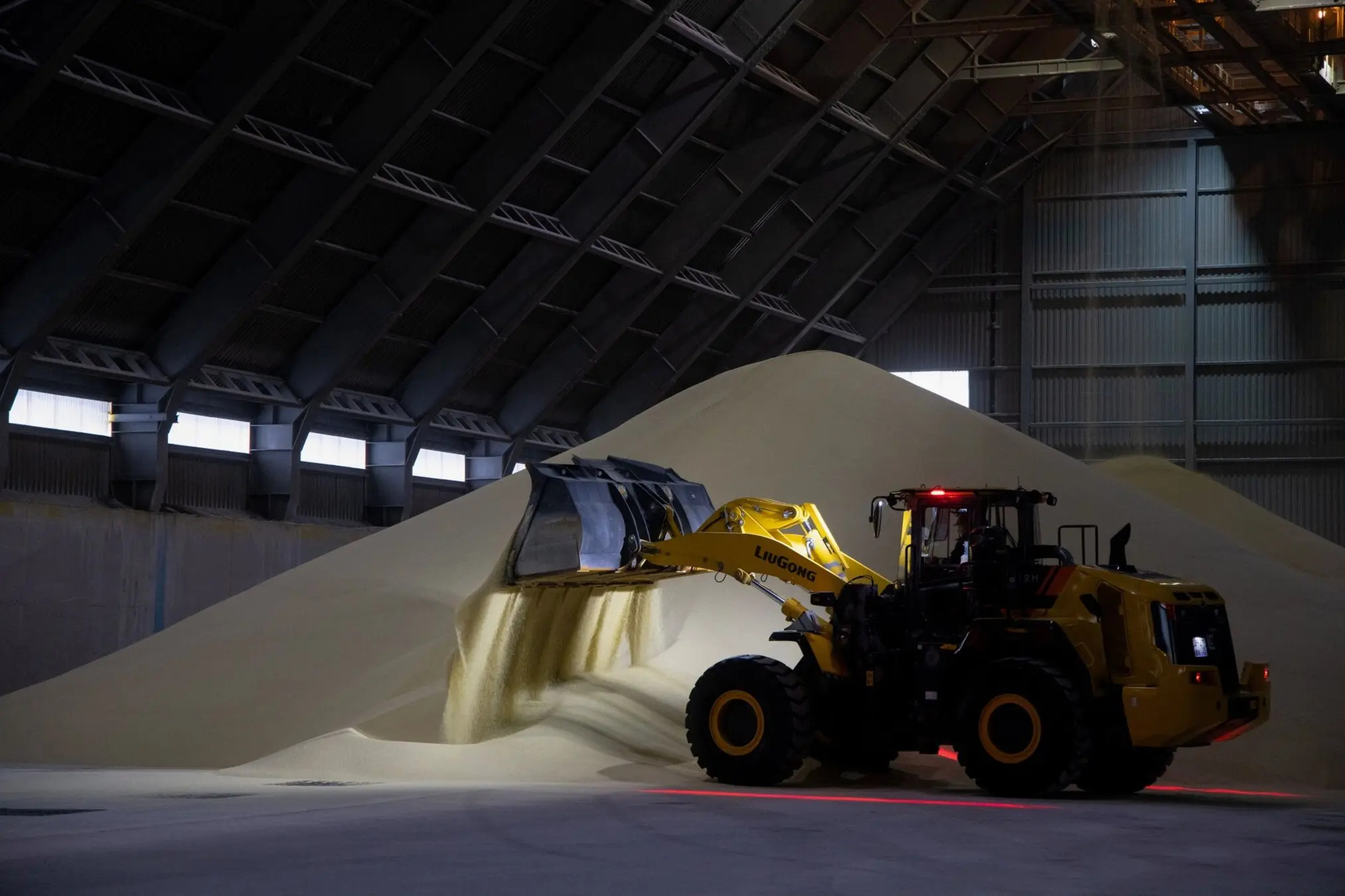
Fertilizer in a storage warehouse in Cherepovets, Russia, in December.Credit...Andrey Rudakov/Bloomberg
The country’s economy has long been dominated by domestic lenders, which only grew in prominence after the 2014 sanctions. European banks, including Raiffeisen Bank and UniCredit Bank, account for most of the 6.3 percent of assets held by foreign lenders in Russia’s banking sector, while U.S. banks hold less than 1 percent, according to the Institute of International Finance.
That limits the potential for a systemic banking crisis to spread globally, but it’s likely to hinder Russia’s growth.
“Russia has a more insulated and isolated economy today than it did a decade ago,” Clay Lowery, the executive vice president of the finance institute, said in a statement after Mr. Biden’s announcement. “This makes it less vulnerable to certain types of sanctions, but its increasing economic isolationism is hurting the country’s growth prospects in the long term,” he said.
The announcement on Tuesday followed weeks of preparation by administration officials, who weighed a range of economic punishments. They included freezing the assets of Russian individuals and companies, banning the trading of Russian sovereign bonds and stopping the nation from using the dollar for payments.
The Biden administration has signaled that it does not intend to cut Russia off from Swift, a Belgian messaging service that connects more than 11,000 financial institutions as they transfer money around the world. Locking Russia out of Swift, officials reasoned, would cause too much damage to the global financial system, and could also spur the growth of rival services.
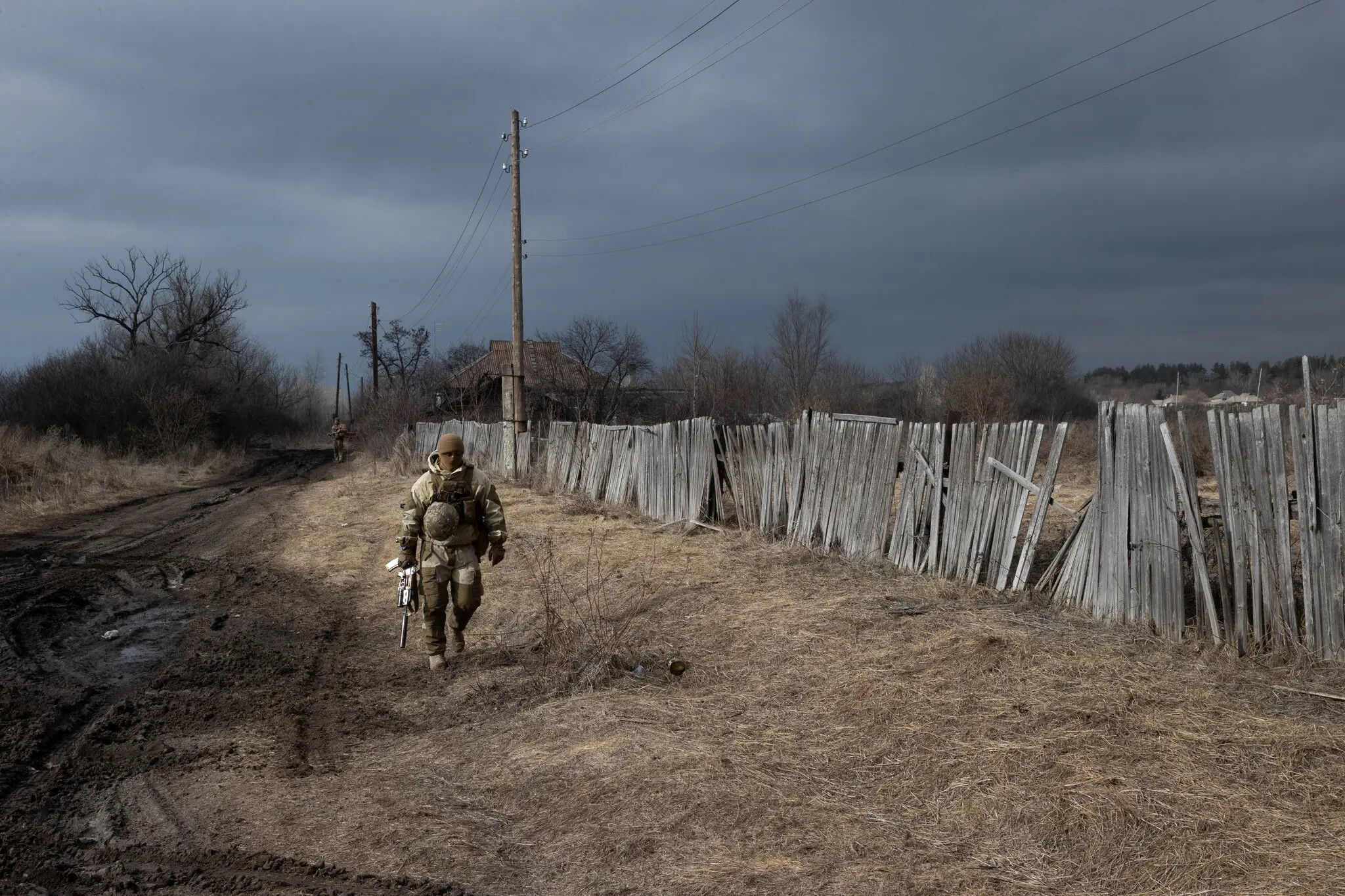
The Ukrainian Army at a front line position in Kryakivka, Ukraine, on Tuesday.Credit...Tyler Hicks/The New York Times
In recent weeks, Biden administration officials have been in regular touch with banks about the possibility of economic penalties on Russia, according to a banking executive briefed on those discussions who spoke on the condition of anonymity because of the sensitivity of the situation. Those talks are aimed at preparing lenders and minimizing the potential disruption to financial markets if broader sanctions are put in place. They also covered how sanctions would work and the potential impact on payment flows, according to another person briefed on the talks.
“The eyes of every major global financial institution are glued to this situation,” said Daniel Tannebaum, a partner at Oliver Wyman who advises banks on sanctions.
While financial firms have less exposure to Russia than they did in 2014, the new sanctions are expected to impose much more significant restrictions on transactions, Mr. Tannebaum said. The Crimea-related sanctions put limits on new financing for companies in certain Russian sectors but did not completely block all transactions.
“This is more like a sniper’s rifle,” he said of the Biden administration’s moves.
Investors, already on edge for weeks as tensions between Russia and Ukraine escalated, sold off stocks on Tuesday. The S&P 500 fell more than 1 percent, and the KBW Nasdaq Bank Index slipped 0.1 percent for a decline of more than 3 percent in the last five days.
“Geopolitics has replaced Covid-19 as the biggest preoccupation for market fear,” said Paresh Upadhyaya, a global bond portfolio manager at Amundi US, an asset manager. “The Russia-Ukraine tensions have the potential to dampen investor sentiment for weeks. Markets are awakening to the rude reality of a dual-headed monster of inflation and geopolitics.”
Another threat to the global financial system is the danger of retaliatory cyberattacks by Russia — something that banks based in the United States are on alert for. The Financial Services Information Sharing and Analysis Center, a group that shares intelligence across the financial industry, said it was looking out for such threats.
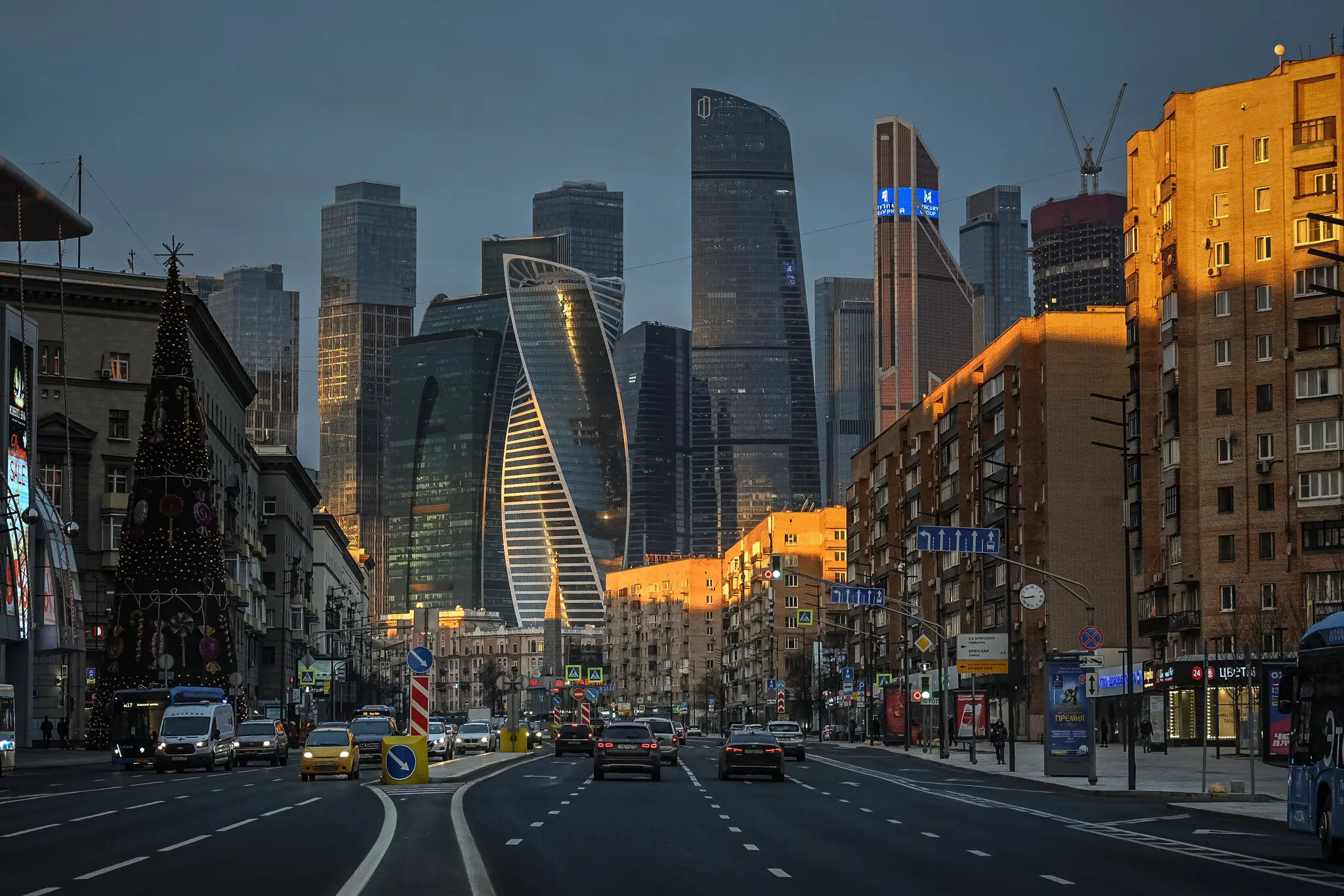
A business district in Moscow. Global banks are on high alert for Russian hacking activity.Credit...Sergey Ponomarev for The New York Times
The Treasury Department met with bank chiefs, including Brian Moynihan of Bank of America and Charles W. Scharf from Wells Fargo, last Wednesday for a previously scheduled meeting to discuss defenses against breaches. The next day, government officials from the White House and several agencies met with executives from large U.S. lenders to discuss their response to potential Russian hacking threats, CNN reported.
On Tuesday, Mr. Biden said the White House wanted to ensure that Americans were not burdened by higher gas prices as energy markets are roiled by the developments. However, he said the United States was prepared to impose deeper sanctions on Russia.
“Whatever Russia does next, we’re ready to respond with unity, clarity and conviction,” Mr. Biden said.
Adam M. Smith, a former Treasury Department official who is now a partner at the law firm Gibson, Dunn & Crutcher, noted that the sanctions program had become more sophisticated over the last decade, giving the United States more leeway to target Russia without as much fear of collateral damage, and that international coordination had improved.
“The U.S. has gotten better at handling the major economies and is doing a much better job of really getting everyone on board,” he said.
Lananh Nguyen covers Wall Street for The New York Times. She previously spent more than a decade at Bloomberg News in New York and London, where she wrote about banking and financial markets. @LananhTNguyen
Alan Rappeport is an economic policy reporter, based in Washington. He covers the Treasury Department and writes about taxes, trade and fiscal matters. He previously worked for The Financial Times and The Economist. @arappeport
----------------------------------
A version of this article appears in print on Feb. 23, 2022, Section B, Page 1 of the New York edition with the headline: World banks are girding for fallout from harsh penalties.. Order Reprints | Today’s Paper | Subscribe
Sign up for the Russia-Ukraine War Briefing. Every evening, we'll send you a summary of the day's biggest news. Get it sent to your inbox.
The Russia-Ukraine War and the Global Economy
Card 1 of 6 Rising concerns. Russia’s attack on Ukraine has started reverberating across the globe, adding to the stock market’s woes and spooking investors. The conflict could cause dizzying spikes in prices for energy and food, and severely affect various countries and industries.
Card 2 of 6 The cost of energy. Oil prices already are the highest since 2014, and they have jumped as the conflict has escalated. Russia is the third-largest producer of oil, providing roughly one of every 10 barrels the global economy consumes.
Card 3 of 6 Gas supplies. Europe gets nearly 40 percent of its natural gas from Russia, and it is likely to be walloped with higher heating bills. Natural gas reserves are running low, and European leaders have accused Russia’s president, Vladimir V. Putin, of reducing supplies to gain a political edge.
Card 4 of 6 Food prices. Russia is the world’s largest supplier of wheat and, together with Ukraine, accounts for nearly a quarter of total global exports. In countries like Egypt and Turkey, that flow of grain makes up more than 70 percent of wheat imports.
Card 5 of 6 Shortages of essential metals. The price of palladium, used in automotive exhaust systems and mobile phones, has been soaring amid fears that Russia, the world’s largest exporter of the metal, could be cut off from global markets. The price of nickel, another key Russian export, has also been rising.
Card 6 of 6 Financial turmoil. Global banks are bracing for the effects of sanctions intended to restrict Russia’s access to foreign capital and limit its ability to process payments in dollars, euros and other currencies crucial for trade. Banks are also on alert for retaliatory cyberattacks by Russia.
Editors’ Picks
- Alex Ovechkin Skates Into Canada’s Ukrainian Enclave as a Scorned Star